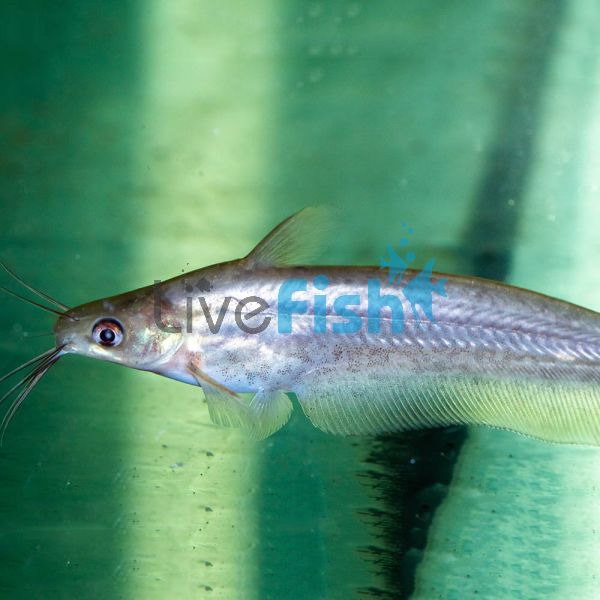Rendahl's Catfish 8cm
The Redahl's catfish will be a great addition to keep in a larger native Australian aquarium. Almost reaching 30 cm long, these golden eel tail catfish are a unique alternative to the more common tandanus catfish. With a slightly brighter colour and more streamlined body, these will be an active and different species that has the head of a catfish and the body of a knife fish, all with the added coolness of being a native Australian species. These catfish are not aggressive as well in any way but are an opportunistic feeder so care should be taken with tank mate selection.
- Buy 2 for $45.27 each and save 10%
- Buy 5 for $42.76 each and save 15%
- Buy 10 for $40.24 each and save 20%
Rendahls's Catfish
The Redahl's catfish will be a great addition to keep in a larger native Australian aquarium. Almost reaching 30 cm long, these golden eel tail catfish are a unique alternative to the more common tandanus catfish. With a slightly brighter colour and more streamlined body, these will be an active and different species that has the head of a catfish and the body of a knife fish, all with the added coolness of being a native Australian species. These catfish are not aggressive as well in any way but are an opportunistic feeder so care should be taken with tank mate selection.
The most unique thing about the redahl's catfish is their body shape. The long and slender shape with the lack of conventional tail makes for a different addition to the aquarium which will surely grab the attention of anyone that looks into the tank. As juveniles, these fish have an almost honey-yellow colour which develops into more of a caramel brown as they mature and grow larger. Some individuals also develop a speckling of dark brown through the body which can also look quite interesting. These catfish are also a tropical fish and will thrive when kept between 24-28 degrees in the aquarium.
Breeding redahl's catfish has not been recorded in the home aquarium since these fish need specific environmental queues to trigger spawning. Males and females of this species also cannot be identified immediately which is why these fish are usually bred in large natural ponds or collected from the wild.
Tank Recommendations for your Rendahl's Catfish
Since the Redahl's catfish can reach 30 cm in length it is best to keep them in an aquarium of at least 350 litres, ensuring the system is longer than taller. These catfish can be quite active once settled in, so the swimming space will be much appreciated.
The choice of hardscape is not a major consideration if the catfish have hiding places for refuge if needed. An ideal natural-looking setup would be to include a soft, sandy substrate or gravel, smooth river rocks, and large driftwood tunnels. Plants can also be used but sometimes these catfish like to dig.
Suitable Tank Buddies
redahl's catfish can be kept together in groups or solitary. They are not an open-water hunter however they are opportunistic feeders. If kept with slow-moving or small fish, there is a high chance that these will become a meal. Aside from that, these fish are peaceful and do not show aggression to other fish in the tank.
Usually Compatible
Top dwelling species like archer fish or saratoga and other native Australian fishlike lungfish, jade perch, Australian bass, and snakehead gudgeons.
Sometimes Compatible
Large rainbows and smaller natives like spangled perch.
Rarely Compatible
Any nano community aquarium fish will become an easy meal for the golden eel tail catfish.
Feeding your Rendahl's Catfish
As the redahl's catfish lives near the bottom of the aquarium it's best to feed them sinking foods. They should take to sinking pellets right away, but this can be supplemented with frozen bloodworms or even mussels.
| Scientific Name | Porochilus Rendahli |
|---|---|
| Care Level | Easy |
| Common Names | Rendahl's Catfish, Golden Eel Tail Catfish |
| Diet | Carnivore |
| Fish Family | Plotosidae |
| Lifespan (years) | 10 |
| Max. Length (cm) | 30 |
| Min. Tank Volume (l) | 350 |
| Origin | Australia |
| Reef Safe | Yes |
| Sociability | Semi-aggressive |
| Venomous | No |
| Water Conditions | 24-28° C, pH 6.0-7.0 |




